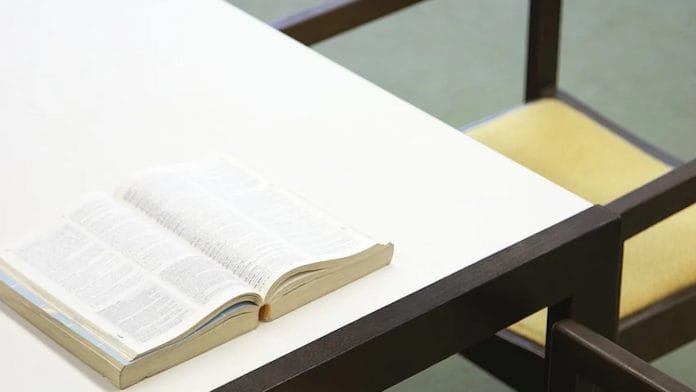Trigger warning: This story contains content about suicide. If you or your loved ones need help, please reach out to a mental health professional.
Almost a year ago, as the world was getting accustomed to playing hide and seek with an invisible enemy, a girl in a southern Indian small town was sitting in her room with her head buried in her pillows, hiding from her friends and parents, and hiding from reality. Her heartbeat was getting faster, fingers were getting colder and her mind, number. The lump in her throat seemed like it could choke her to death, and death was what she sought as salty tears rolled down sore eyes. She felt like death was the only way she could atone for her ‘sins’.
That girl was me. Having failed to clear the CLAT entrance exam, I had spiralled down the chasm of self-destruction. I was depressed and mentally exhausted by the impending uncertainty and was staring down a precarious path of anomic suicide.
But before things could get out of hand, I was dragged out of the rut that I was in and put into the care of a mental health professional by my perceptive parents, who had sensed that not all was right with their daughter. Access to professional help was seminal in my journey out of the dark cave that I had ventured into. And it was my privilege indeed that I had my parents by my side who understood the gravity and seriousness of the situation I was in and did not dismiss it as a creation of my imagination.
A year later, in another small town in South India, another teen stood at the same crossroads that I had once found myself in. She too had just emerged out of the flames of a highly competitive examination. However, there was one thing that stood out starkly different in her story – the lack of privilege. For 18-year-old K Kanimozhi from Ariyalur, there was no one who could talk and counsel her out of the precarious situation she found herself in and the ghoul of suicide ultimately claimed her life and added another medal into its spoils.
Kanimozhi is not the first student in Tamil Nadu, nay the country, to die by suicide this year.
Also read: 4 suicides in 7 months at IISc Bengaluru during Covid put spotlight on mental health issues
What is it that makes students so prone to suicides? A simple interview with any student preparing for any competitive exam in India, be it JEE, NEET or CLAT will reveal that the major source of mental distress among the students is the debilitating amount of pressure that is put on them by almost any and every one in their lives. During the term of those few years that we students set aside to prepare for a competitive examination, every teacher, every relative and every random aunty or uncle passing on the street iterate and reiterate the importance of studying hard and getting admission into a good college. While innocuous inquiries into what the student is aspiring to take up after graduation from school, or where her interests lie are much appreciated and even motivate us, constant haranguing that is faced particularly at the hands of a few parents, many relatives and most coaching class instructors definitely has a detrimental effect on our mental wellbeing.
This brings up the question of what can be done to ease the pressure off students’ minds. The answer to this question is not that complex and, in fact, lies right in front of our eyes. The first step that needs to be taken is to curb the commercialisation of the entrance exams. The highly complex nature of most, if not all, of these exams invariably means that to clear them parents have to dish out a dream to enrol their wards into reputed coaching centres, this increases the problem for the student in more than one ways as she is now under increased pressure to clear the exam to repay the fortune spent by the parents on coaching and she also has to face the added pressures from the coaching institute for whom young minds are nothing but mere statistics to reflect on a highway hoarding or a banner at the back of a bus.
Unless and until this vicious system is weeded out from the country’s examination culture, no perceptible change will be witnessed in terms of curbing suicide rates among students. The government should take cognisance of this issue if it really believes in the much bandied about adage, “Today’s children are tomorrow’s future”.
Prerana Srinath is a student of Jindal Global University. Views are personal.






